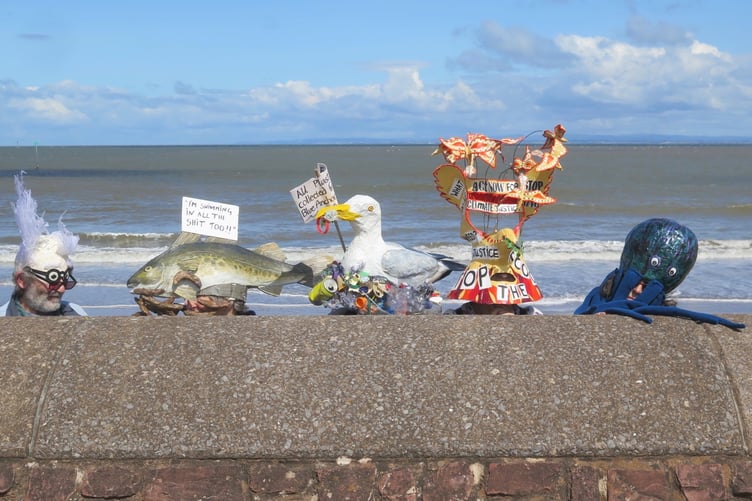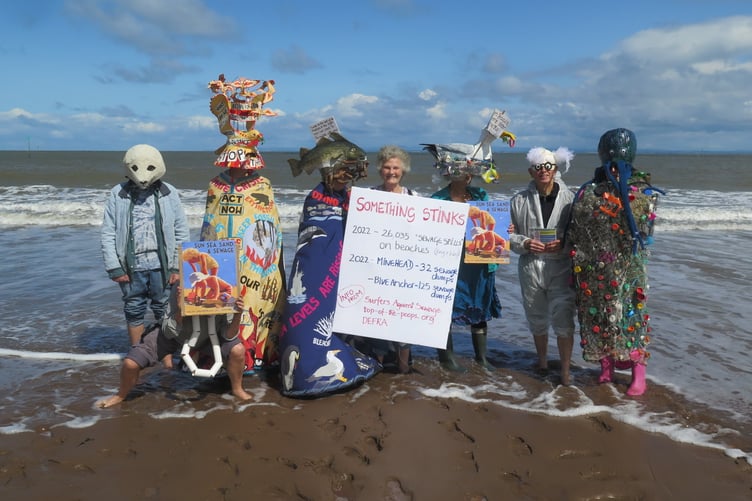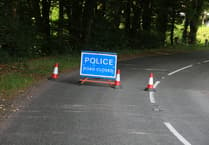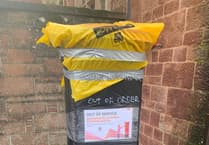EXTINCTION Rebellion Wiveliscombe (XR) was joined by members of Alcombe Women’s Institute (WI) for the group’s latest protest on Minehead beach.
It was part of a national action around the UK coast and the country’s rivers to highlight the dumping of sewage.
The protesters gathered on the beach in Minehead in colourful sea creature masks and cloaks embroidered with climate crisis messages as part of a national weekend of protests.
Local swimmers and surfers concerned over water pollution also joined the XR and WI protest.
They carried banners with the message ‘Something Stinks - 32 sewage dumps at Minehead in 2022’.
The action highlighted what XR believed was a failure by the Government to tighten environmental regulations and stop ‘profit-grabbing’ by water companies.
A new WI campaign ‘Clean Rivers for People and Wildlife’ has been encouraging members to make and support applications to create bathing waters in rivers as a way to drive their clean-up.

The beach protesters also drummed to draw attention to the plight of the oceans and marine life suffering alongside holidaymakers.
Wiveliscombe XR spokesperson Rah Cattell said: “We have come to our nearest coastal town and have been shocked to hear people reporting sewage floating regularly in the sea off Minehead, a town that is dependent on holidaymakers coming here to spend family time together.
“Nobody expects to go swimming in the sea and get dangerously ill as a result.
“Within five minutes of arriving, we had met a local resident and swimmer who had to take antibiotics to battle a kidney infection picked up while swimming in the sea.”
The resident, David Browning, said: “You should not have to be swimming in a toilet should you.”
Ms Cattell said last year sewage was dumped 375,000 times across England for a combined 2.3 million hours.
She said over the same period, England’s water companies paid out £1.4 billion pounds to shareholders.

Apart from organic matter, raw sewage often also contained microplastics, industrial and agricultural chemicals, parasites, and heavy metals, a chemical cocktail which was not only dangerous to humans but could harm marine ecosystems and the creatures who lived in them.
Ms Cattell said meanwhile, only 14 per cent of the UK’s rivers achieved ‘good’ ecological status with pollution from agriculture, human sewage, roads, and single-used plastics creating a dangerous ‘chemical cocktail’ in the country’s waterways.
The ‘Dirty Water’ actions are part of a larger campaign to protect nature and waterways which can be followed by visiting https://actionnetwork.org/forms/dirty-water.





Comments
This article has no comments yet. Be the first to leave a comment.